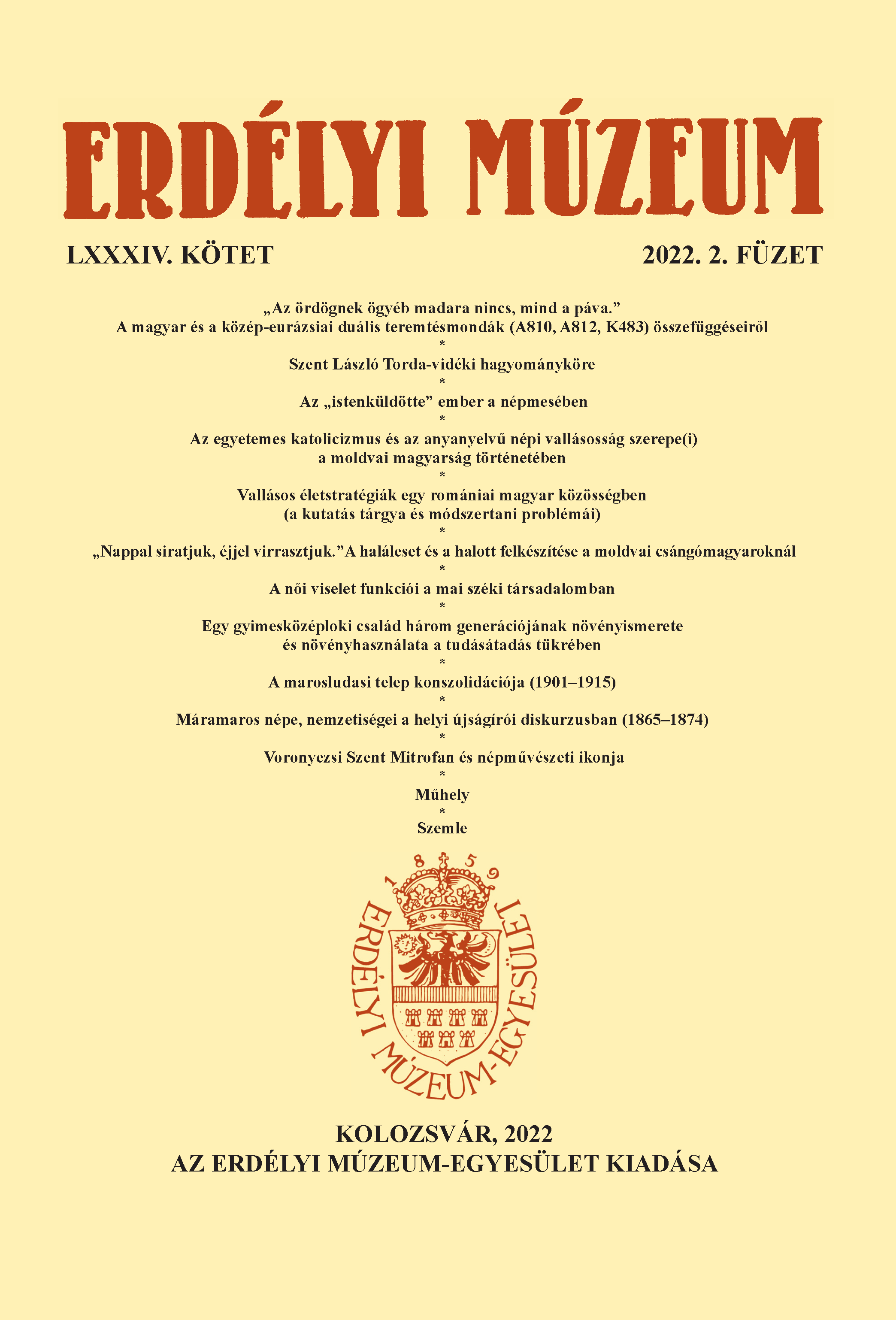Az egyetemes katolicizmus és az anyanyelvű népi vallásosság szerepe(i) a moldvai magyarság történetében
The Role(s) of Universal Catholicism and Vernacular Popular Religion in the History of Moldavian Hungarians
Author(s): Laura IancuSubject(s): Cultural Anthropology / Ethnology, History of Religion
Published by: Erdélyi Múzeum-Egyesület
Keywords: Moldavian Catholicism; popular religion; religious folklore; folk prayers;
Summary/Abstract: According to the study, the history of the Eastern Church of Vatican and the history of Moldavian Catholicism are closely intertwined. In Orthodox Moldavia, the Catholic Church was present not only as a religious institution, but also as a political and cultural force, and participated in the introduction and establishment of Western, Latin spirituality in Moldavia. As the Catholic population consisted of different ethnicities (Saxons, Poles, Hungarians), and because the church itself was institutionalized on the (geographical and religious) East-West border, the foreign (Western) church itself helped the assimilation of foreign ethnicities to the nation-state, involuntarily. In this environment, the ethnic survival of the Moldavian Catholic Hungarians is partly due to the fact that the Vatican’s attention was not primarily focused on the faithful, but on maintaining the mission and then, on the full legalization of the church. The operation of native-speaker cantors, the vernacular popular religiosity and religious folklore contributed significantly to the believers’ faithfulness to the church, and the preservation of their Catholic faith. The study discusses some of these deeply complex issues of history of church and religion.
Journal: Erdélyi Múzeum
- Issue Year: LXXXIV/2022
- Issue No: 2
- Page Range: 63-78
- Page Count: 16
- Language: Hungarian

